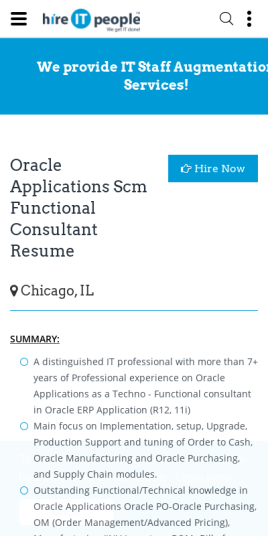
A junior software engineer's job can be challenging but rewarding. Many companies are seeking these highly-skilled individuals. Lockheed Martin and IBM are two examples. This article will explain the requirements for this job and the work environment. Once you have read it, you will be ready to begin your job search.
Doing job
A junior software engineer's job responsibilities include the implementation of software solutions and analysis of data. However, they may also have a larger role. Software engineers may work in small and large companies. Others might work in consulting. Software engineers are able to move up the career ladder due to their wide-ranging skills.
Software engineers should be well-versed in all aspects of software development, from design and testing to debugging. They must also have a strong working knowledge of software languages, frameworks, and tools, and be able to write elegant code. They must be able collaborate with others and multitask. They must be able to use different databases and email systems.

Education is required
To become a junior engineer in software engineering, you will need to complete formal education in computer science. There are many ways to learn about this career. You can attend traditional colleges, or you can take online courses. Check out this list of education requirements for this job to get a better understanding.
A bachelor's in computer science or a similar field is highly recommended. An engineer in software must also possess solid programming skills. They should be able to understand at least one scripting language and an object-oriented language such as Java and C++. Of course, these technical skills will not be of much use if you don't have a curiosity for how to solve problems.
Salary
The typical salary of a junior engineer in software engineering is comparable to that paid to other engineers working in the field. If you're unhappy about your current salary, there are always ways to increase it. A great way to do this is to consult recruiters. These professionals can give you valuable insights about the salary of junior software developers.
A typical Junior Software Engineer salary ranges from USD 60,000 to USD 200,000. A junior software engineer's salary can be higher or lower depending on where you live. The range of salaries for similar positions is the same across the United States.

Environment for work
A junior software engineer is typically employed in an IT company. They may travel to attend training and conferences. During crunch periods, they may be required to work longer hours. They work in teams, and are supported by senior software engineers or other professionals. This type work provides a lot of potential for growth, but it is important that they keep abreast of the latest developments in this field.
The typical working hours of a junior software engineer are eight to nine hours per week. Some companies require more hours than this, while others require on-call work or evening hours. Although this is common, it can be difficult for someone still learning to take a career break.
FAQ
What is the cost of hiring a consultant?
It is not easy to determine how much it will cost to hire a consultant. These are:
-
Project size
-
Time frame
-
Scope of work
-
Fees
-
Deliverables
-
Other factors such as location and experience are also important.
What should I expect from my consultant
Once you select your consultant, you should expect to hear back from them within a few days. They will usually ask for information about your company, including its mission, goals, products, services, budget, etc. They will then send you a proposal that outlines the scope of work and estimates timeframe, fees, deliverables, milestones and other details.
If everything looks good, then the two parties will negotiate a written contract. The terms of the contract will depend on the type of relationship between the two parties (e.g., employer-employee, employer-independent contractor).
If everything goes well, the consultant should start work immediately. You will have access both to your documents and internal resources and the consultant's skills and knowledge.
Don't think that consultants are experts. It takes practice, effort and practice in order to be an expert in any area you consult. So, don't expect your consultant to know everything about your business.
What was the origin of modern consultancy?
Consultants were originally accountants who could help companies manage their financial affairs. They were known as "accounting consults" because they are highly skilled in the management of financial information. But, their role soon expanded to other areas such as human resource management.
The French word meaning "to advise" in French is what gave rise to the term "consultant". This term was originally used by businessmen to denote someone who could give guidance on how to run an enterprise. Today, business owners still use the term consultant to refer to any type of professional advisor.
Statistics
- On average, your program increases the sales team's performance by 33%. (consultingsuccess.com)
- According to statistics from the ONS, the UK has around 300,000 consultants, of which around 63,000 professionals work as management consultants. (consultancy.uk)
- Over 50% of consultants get their first consulting client through a referral from their network. (consultingsuccess.com)
- My 10 years of experience and 6-step program have helped over 20 clients boost their sales by an average of 33% in 6 months. (consultingsuccess.com)
- "From there, I told them my rates were going up 25%, this is the new hourly rate, and every single one of them said 'done, fine.' (nerdwallet.com)
External Links
How To
What does a typical day look like for a consultant?
Your work type will determine the length of your day. You will be spending time researching, planning new ideas, meeting with clients, and creating reports.
Meetings are a common way to discuss problems and issues with clients. These meetings can be conducted over the phone, by email, face-to-face, or online.
The proposal is a document that outlines your ideas and plans to clients. These proposals will be presented to clients by you and a mentor.
After all the planning and preparation, you will have to produce some content. This could include writing articles, designing websites or editing photos.
It depends on the project's scope, you might need to do some research to collect relevant statistics. This could include finding out how many customers your company has and whether they purchase more than one product.
Once you have enough information, it is time to present your findings and conclusions to clients. You can either present your findings in writing or orally.
After the initial consultation, it is important to follow up with clients. You might contact them regularly to check on their progress or send them emails to confirm they have received your proposal.
This process takes time, but it's important to ensure that you stay focused and maintain good relationships with clients.